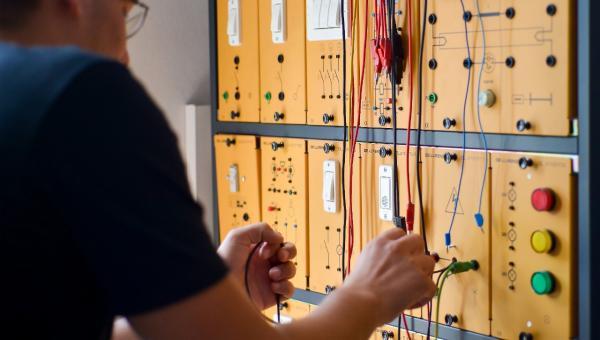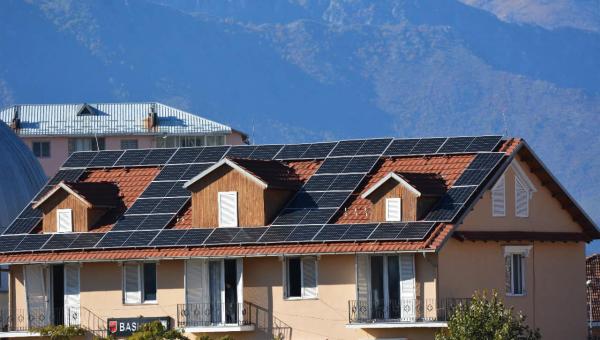UNDP Albania
Resilience Strengthening in Albania – RESEAL
Summary
RESEAL project supports the efforts of the Government of Albania to improve the disaster risk management (DRM) system in the country. The overall objective of the project is to strengthen, Albania’s DRM system and support country’s efforts in becoming a fully-fledged member of the EU Civil Protection Mechanism. The project also promotes the implementation of Sendai Framework for Disaster Risk Reduction (SFDRR). It is developed considering the Post Disaster Needs Assessment conducted after the November 2019 earthquake that hit Albania. Considering the severe and acute public health emergency due to the COVID-19 global pandemic, measures related to risk preparedness and risk mitigation of biological hazards will be provided.
Ahead of the RESEAL project take off, with the aim of laying the grounds and facilitating the project initiation, UNDP launched in February 2020 two pilot interventions: a central -level pilot on DRM System Capacity Development in Albania, and a local - level pilot starting with Municipal DRR Framework in Lezha Municipality and later extending to Fieri Prefecture including six municipalities.
RESEAL project officially started its implementation following the bilateral signing of the project document by the Ministry of Defense and UNDP on 16 July 2020. The RESEAL project has two major interlinked pillars:
- strengthening the DRM strategic and operational framework and capacities at central level;
- support the development of local (municipal) DRR framework and local response capacities in harmonization with the national DRR system and legal framework in place.
RESEAL project has been developed as a comprehensive response to the emerging need to strengthen the DRM systems at all levels in Albania. As such, in its entirety, the project contains a multi-level set of priorities around three components:
- strengthening the DRR framework and capacities at the central level;
- building DRR local level knowledge, planning and organizational capacities for prevention and response to disasters;
- supporting critical needs for DRR infrastructure.
The project partners with the civil protection system and particularly the Disaster Risk Management (DRM) at all levels in the country.

Inter-institutional political working group meeting on preparation of national Disaster Risk Reduction (DRR) strategic and planning documents in Albania
Background
In the aftermath of the November 2019 earthquake and in line with the PDNA recommendations, in early 2020, UNDP Albania started engaging with the DRR sector with a plan to implement a long-term capacity building programme. Initially, UNDP embarked on two pilot interventions at the central and local level, which were soon integrated under a broader intervention framework- more specifically the Resilience Strengthening in Albania, (RESEAL), project which became operational from 1st July 2020.
The project objective will be attained through a number of interventions: supporting the enhancement of and improvement of institutional coordination and cooperation in the DRM system by further developing the DRR framework; providing direct support to key DRM institutions with a particular focus on the National Agency for Civil Protection, and delivering capacity building programmes to strengthen preparedness and response capacities of the national, prefecture and municipal bodies.
The project has in parallel, initiated the Capacity Development Process for the Disaster Risk Management System in Albania, which is indispensable for risk-informed development effectiveness and the achievement of nationally and internationally agreed development targets. It also supports the prefecture and municipal levels through institutional building as per the legal requirements and the exercises of local risk assessment, local DRR strategies and Emergency Plans. These two initiatives are currently being piloted by UNDP at central level and in the municipality of Lezha.
One key ingredient of the DRR legal framework and essential element for building-back-better (BBB) during recovery is the update of the Building Codes, which the project will address.
Considering the importance of regional cooperation in complementing national efforts to reducing risk, during it entire duration, the project will support opportunities for capacity building and regional exchanges, contributing to Albania’s aspiration to meet the criteria for joining the EU Civil Protection Mechanism.
The central level pilot, preceding RESEAL, intended to support a national DRR Capacity Assessment, the findings of which facilitated the process of strengthening DRM policy framework and subsequently leading to the drafting of the new National DRR Strategy and its Action Plan. Furthermore, at the institutional level, the project supports the institutional strengthening of and closely interacts with the National Civil Protection Agency (NCPA) to create an enabling framework for DRR and substantiate the Civil Protection & DRR legal framework.
The local level pilot in Lezha developed the local DRR framework in Lezha municipality. Support was also provided to develop the integrated municipal Risk Assessment, the local DRR Strategy, and the Local Civil Emergency Plan, as well as the roadmap for tackling these processes in any other municipality- all done in a participatory manner. The pilot was developed with the intention to replicate Lezha`s model in other municipalities.
Extensive consultations, field visits, and active participation of interinstitutional technical working group have been pivotal in shaping strategic and planning documents in Fieri Prefecture and its six municipalities. These inclusive efforts ensure community representation, particularly for women and vulnerable groups. The adopted risk assessment documents are essential tools for addressing disaster risks and the impacts of climate change at the local level, serving as a successful blueprint for other Prefectures to follow.
In line with the SDG goals and associated targets and the Sendai Framework for Disaster Risk Reduction, UNDP supports actionable risk information; strengthens disaster and climate risk governance through policy, legal and institutional arrangements that foster integrated solutions. Based on the Capacity Assessment exercise that is being conducted under the pilot, the capacity gaps related to disaster risk reduction are assessed through stakeholder mapping and systems thinking approach. Results of the DRR capacity assessment will contribute to the development of national components such as the DRR strategy and Action Plan, the National Platform on DRR and the National Civil Emergency Plan.
Major achievements
- The National Civil Protection Agency supported to shape organizational model, scope, and provided with capacity building interventions.
- Capacity Assessment of DRR institutions conducted including the ones related to biological hazards and endorsed by National Civil Protection Agency.
- Three key reports developed and endorsed by national authorities: National Disaster Risk Assessment Document (approved by DCM no. 168, dated 24.03.2023); National DRR Strategy and Action Plan 2023-2030 (approved by DCM no. 94, dated 22.2.2023); National Civil Emergency Plan including COOP and COG (approved by DCM no.807, dated 28.12.2023).
- Three local DRR strategic/planning documents for Lezha Municipality are prepared, endorsed and approved by Lezha Municipality Council.
- Disaster Risk Assessment documents for six municipalities of Fieri Region prepared, endorsed and approved by respective Municipality Councils.
- Disaster Risk Assessment at regional level for Fieri Region prepared and approved.
- The work has begun, with expertise, on the local DRR Strategies for six municipalities of Fieri Region.
- The process for the preparation the Civil Emergency Plans of Fieri qark (region) and its six municipalities is ongoing.
- A comprehensively analyses of the pre-university education curricula and informed recommendations for strengthening the integration of Disaster Risk Management knowledge, ultimately enhancing preparedness and resilience among students and communities. Development of ToR on training materials and school curricula (education programmes) in schools in line with EU guidelines in Albania. A detailed educational annual programme including drills/stimulation prepared.
- Albanian Seismographic Network (ASN) supported and strengthen by doubling national capacities on seismic monitoring and data collection with strong motion stations.
- Albania full member of EUCPM, assistance and support provided for the membership, capacity building to enhance awareness on UCPM, and deliver training on UCPM legislation, implementing rules and overall procedures.
- The “Continuity of Operations (COOP) and Continuity of Government (COG) Plans in Albania consultancy as part of the National Civil Emergency Plan”, is in the contract signing phase.
- The “Develop whole-of-government communications and notification standard operating procedure (SOP)” have been prepared.
- Education and awareness campaigns on disaster risk reduction conducted in partnership with national and local institutions. Development of a training module focused on Public & Media Communication and Operational Communication for emergency scenarios.
- The Pre-University Education Institution Disaster Risk Management (DRM) Simulation Exercise has been announced, which will take place in 12 Pre-University Education Institutions in 6 regions of the country.
At the end of the 2023 Government of Albania, though National Civil Protection Agency on behalf of Ministry of Defense, has signed with UNDP a financial agreement as a contribution to the RESEAL project to enhance the National Civil Protection System and increase financial resource to strengthen national disaster risk management and preparedness.
Project Outcome
Component 1: Strengthening DRM institutional, policy and legal framework in Albania
Component 2: Strengthening disaster preparedness capacities at all levels
Component 3: Sustain Albanian’s Regional & International Cooperation

Related Materials
Impact
Explore other UNDP's projects in Albania

 Locations
Locations






